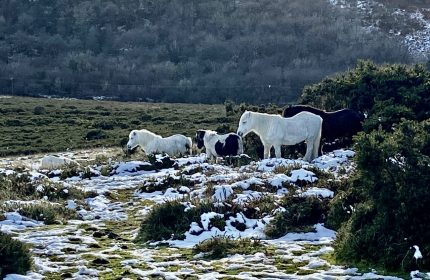Every single one of us has responsibility for oceans, says David Attenborough
Immediate action is needed to tackle plastic pollution in the world’s seas, Sir David Attenborough has said ahead of a major new TV wildlife series.
Speaking as details of the BBC’s Blue Planet II were unveiled, Sir David said “every one of us” has a responsibility for the oceans and singled out rising sea temperatures and plastics as the most urgent issues.
One million plastic bottles a MINUTE are bought across the planet. Let us know what you think with #OurBluePlanet pic.twitter.com/qvVIutf9eg
— BBC #OurBluePlanet (@OurBluePlanet) July 5, 2017
Filming the series revealed “tragedies” caused by plastics in the ocean, such as an albatross feeding its young with plastic rubbish instead of squid, the veteran broadcaster warned.
Sir David, who presents Blue Planet II, said he did not know what could be done about rising sea temperatures in the next decade.
“But we could actually do something about plastic right now. And I just wish we would,” he said.
“There are so many sequences that every single one of us have been involved in, even in the most peripheral way, where we have seen tragedies happen because of the plastic in the ocean.”
We must understand the dangers of plastic pollution and how it impacts marine life. https://t.co/NydXZ6HukO #CleanSeas pic.twitter.com/CjP8qAtdZZ
— UN Environment (@UNEP) June 13, 2017
Blue Planet II returns to the world’s oceans after 2001’s award-winning The Blue Planet.
It captures new footage and scientific discoveries of species’ behaviour and habitats including deep coral reefs, high seas, underwater forests and coasts using new filming techniques.
The series also looks at the impact of humans on life in the ocean, from warming seas and plastics to pollutants in the milk dolphins feed their calves, as well as telling stories of species recovery.
Executive producer James Honeyborne said the team, which has been making underwater films for a long time, had seen major changes such as plastics.
“So you can’t really make a contemporary portrait of the oceans today without including these important changes which are going on. You just can’t avoid them and it wouldn’t be right to,” he said.
8.8 million tons: The amount of plastic that enters the ocean every year. https://t.co/Q9X5nV0fMZ
— World Wildlife Fund (@World_Wildlife) March 13, 2017
Sir David said he wanted viewers to come away from watching the seven-part documentary with an understanding “that we have a responsibility. Every one of us”.
“We may think we live a long way from the oceans but we don’t. What we actually do here, and in the middle of Asia and wherever, has a direct effect on the oceans and what the oceans do then reflects back on us.
“It is one world. And it’s in our care.”
He added: “For the first time in the history of humanity, for the first time in 500 million years, one species has the future in the palm of its hands. I just hope he realises that that is the case.”
Louise Edge, from environmental charity Greenpeace, which is campaigning to stop marine plastic pollution, said: “Sir David Attenborough has spent a lifetime exploring the natural world.
The Press Association
Latest posts by The Press Association (see all)
- 8 things your feet can tell you about your health - January 8, 2025
- 9 ways to look after your emotional health better in 2025 - January 7, 2025
- EastEnders fans to vote on storyline for the first time in 40th anniversary week - January 7, 2025
- Aldi beats rival Lidl as cheapest supermarket of 2024 - January 6, 2025
- All the benefits of lifting weights beyond bigger muscles - January 6, 2025





















